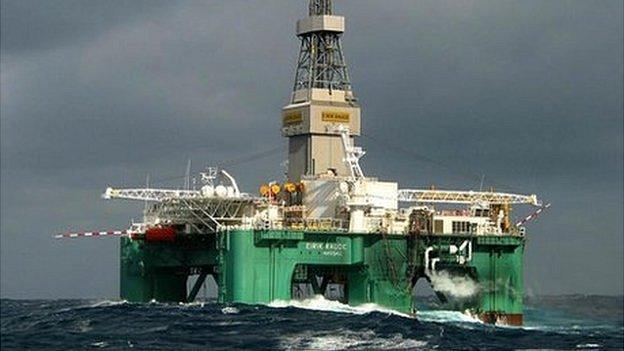
55% FROM IRELAND

The Irish government is to raise the maximum amount of tax levied on offshore oil and gas production to 55 per cent but has stopped short of setting up a national oil company along the lines of Norway's Statoil.
Amid public controversy over the potential of oil and gas deposits in Irish waters, and the amount of tax companies pay on any profits any commercial fields would generate, Pat Rabbitte, Ireland's energy minister, said on Wednesday that the new fiscal regime would increase the state's tax take at an earlier stage in the production process.
The arrangements mean that the overall amount of tax oil companies will pay on commercial production would rise to a maximum 55 per cent, depending on the size of the field, from 40 per cent currently. The new higher rate will apply to new licences only; existing contracts are not affected.
The changes follow a report by Wood Mackenzie commissioned by the government into the fiscal regime surrounding oil and gas exploration and production in Irish waters. The consultants compared Ireland's fiscal arrangements with those in marginal production countries such as South Africa and Spain and recommended the changes based on the potential for commercial oil and gas discoveries.
The UK and Norway were also included in the comparisons because of the frequency with which their experiences are cited by both proponents and opponents of exploring for oil and gas in Irish waters.
Mr Rabbitte said that by acting now to clarify future licensing terms, "it is my intention to communicate a clear message in relation to the stability of Ireland's fiscal regime for the oil and gas exploration sector". He said that would allow them to "focus on effective and timely exploration effort".
Oil and gas companies have been prospecting in Irish waters for more than four decades. The Wood Mackenzie report says that only four commercial gasfields have been discovered, and no commercial oilfields. One industry executive estimates that up to €4bn has been spent on exploration in the waters of the Atlantic and the Celtic Sea so far.
Controversy over the financial returns from Irish oil and gas has been sparked by the delays that have plagued the Corrib gasfield off the northwest coast. It was discovered in 1996 but production is not expected to come onshore until 2015 after public protests against the building of pipelines led to arrests and the jailing of protesters that sparked public outrage.
Industry executives say comparisons of Ireland with Norway are inappropriate and premature. The Wood Mackenzie report said: "The essential point is that . . . offshore Ireland remains a very high risk, very high cost province for exploration."
ft.com



